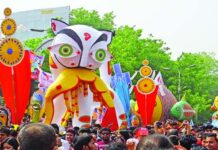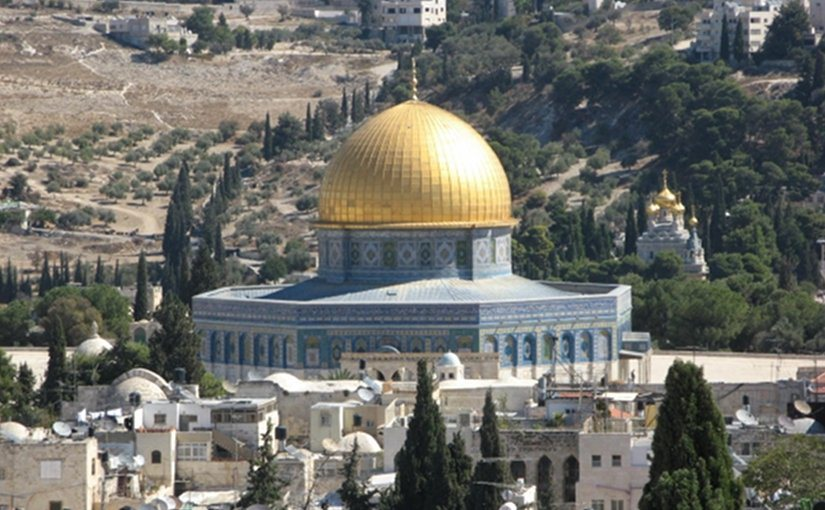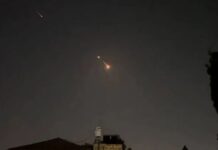
The state-run Bangladesh Road Transport Corporation (BRTC) launched articulated buses on Dhaka streets in 2013 claiming that more passengers could be carried on a single bus in the city of traffic jams. These buses were purchased from India at a price of Tk 8.4 million (84 lakh) each excluding duty and tax. But most of the buses became dilapidated within three years. After eight years, 15 out of 50 articulated buses remain grounded at the BRTC depot in Gazipur now. The other dilapidated buses are being operated on less important routes.
An articulated bus has 58 seats and a capacity to carry, on an average, 130 passengers in each trip. At the beginning, articulated buses were seen moving on the capital’s important routes but these vehicles hardly ply now. Sometimes these buses are operated from the Gazipur bus depot after maintenance.
Sources at BRTC said the state-run agency has a total of 1,802 buses in its fleet. Of which, 540 buses have become out of order and are in repairing workshop. Although 1,558 of the total buses, more than 86 per cent, have been purchased in the last decade. According to BRTC’s accounts, more than Tk 1.52 billion (152 crore) has been spent for bus maintenance in last 5 years.
BRTC had started with a goal to show the private sector the way. But the agency itself has become a burden of the government due to corruption and mismanagement
Records of the BRTC’s bus procurement show some 2,100 buses have been purchased from different countries since 1990. Of these, 1,554 buses are of Indian’s Ashok Leyland and Tata brands. The rest were bought from China, South Korea and Sweden. No bus lasts more than 10 years. Even double-decker buses of the famous Swedish Volvo brand have turned shabby within a few years.
Why are BRTC buses not lasting? Several reasons were identified after talking to BRTC officials and experts. These include import of low quality buses, lack of maintenance, corruption in maintenance and machinery procurement and leasing out costly buses.
Regarding this, BRTC chairman Tajul Islam told Prothom Alo on Wednesday night that it’s true that BRTC buses go out of service quickly. Efforts are on to find out why the buses are going out of order quickly and how long the different buses last.
BRTC begins to sink
BRTC is an autonomous body. It bears all expenditures including staff salary from its own revenue. But the agency has begun to sink because of its buses becoming unfit quickly as well as growing corruption and debt. BRTC owed Tk 7.24 billion (724 crore) to the government and various countries.
Recently, the government took loans from the Nordic Development Fund (NDF), Economic Development Cooperation Fund (EDCF) of Korea and the government of India to purchase buses for BRTC. Other than this, the government also lends money to BRTC with a fixed interest but never gets it back.
Drivers and workers of BRTC are resorting to corruption because of not receiving their salaries. Some were operating buses by taking these on lease from BRTC in a bid to earn money
Records of BRTC’s revenue and expenditure show, BRTC has earned Tk 27.29 billion (2,729 crore) from 2008-09 to 2019-20 fiscal year. The agency’s revenue comes from passenger and goods transportation, leasing out of its lands and establishments, repairing other vehicles at its workshops and providing training to drivers. BRTC spent Tk 26.74 billion (2,674 crore) during this period. So, the operating income was about Tk 650 million (65 crore).
According to sources at BRTC, this Tk 650 million can’t be counted as profit since the agency has to spend more than Tk 100 million (10 crore) for gratuity, lump sum grant and contributory fund of the employees who go on retirement every year. BRTC still owns Tk 260 million of debt in this heads.
A BRTC official, on condition of anonymity, told Prothom Alo that BRTC isn’t making profit despite launching so many buses and one of the major reasons is corruption. If there was 70 per cent transparency in revenue and maintenance, BRTC could make profit then.
BRTC has 21 buses and two truck depots across the country. Salary of the employees at almost every depot remains unpaid since expenditure exceeds income. Employees’ salary remains unpaid at the depots in Dhaka’s Gabtoli, Chattogram, Bagura and Rangpur for more than a year. Employees went to strike at Dhaka’s Joar Sahara several times demanding their arrears.
A BRTC driver, on condition of anonymity, told Prothom Alo, drivers and workers of BRTC are resorting to corruption because of not receiving their salaries. Some were operating buses by taking these on lease from BRTC in a bid to earn money.
BRTC is an organisation of the transport ministry. Transport secretary Md Nazrul Islam told Prothom Alo that the quality of BRTC buses is fine. However, there is dissatisfaction at the ministry over the longevity of the buses. It is being seen as to whether there is any negligence in maintenance. The service of BRTC has not increased in proportion to the investment. There are weaknesses in the management. Initiative has been taken to make service and financial issues more transparent, he added.
Sources in the government said, the government purchased a total of 1,028 buses and 550 trucks from India in two phases.
India promised Bangladesh $1 billion LOC (line of credit) in 2010. A project was taken to purchase 290 double-decker buses, 88 single-deck buses and 50 articulated buses under the LOC. All buses were bought from India’s Ashok Leyland following all conditions of the credit. It cost $37 million plus tax and duty.
The government also signed the credit agreement worth $2 billion with India in the second phase. A project was taken to purchase 600 more buses and 550 more trucks under the credit. These buses arrived in the country in 2018 and 2019. This cost Tk 4.67 billion (467 crore) including duty and tax.
Sources at BRTC said some 300 double-decker buses of Ashok Leyland were purchased in the second phase at a price of Tk 9.2 million (92 lakh) each including VAT and tax. Some 100 AC city-service buses of Ashok brand were also bought at a price on Tk 6.8 million (68 lakh) apiece. Another 100 buses of same brand were purchased for long route at a price of Tk 7.3 million (73 lakh) each.
In 2019, some 100 single-deck non-AC buses were purchased from Tata Motors at a price of Tk 5 million (50 lakh) each. Immediately after attaching the vehicles with the depots, allegation surfaced that several buses contain holes on the celling. Later Tata fixed it after BRTC authorities contacted them, BRTC sources said.
Swedish, Chinese and Korean buses also in bad shape
Some 50 double-decker modern buses of Sweden’s Volvo brand were launched on Dhaka streets in 2001-02. These comfortable and attractive buses had drawn considerable attention. But these buses started breaking down within five years. BRTC officials said these buses become out of order quickly because these were leased out to different individuals. But various companies have been operating Volvo buses on long routes even before BRTC did.
According to BRTC sources, 30 CNG-run buses of Chinese FAW brand were brought in for the first time. These vehicles don’t exist anymore.
In 2010, some 285 CNG-run buses were procured from China at a cost of Tk 1.14 billion (114 crore). These buses are not seen on the road now. BRTC officials said buses were plagued with glitches within six months of their launch. Almost all buses broke down in five years. BRTC has now decided to sell some of these scrapped buses.
Procurement records of the projects show, these buses were purchased in 2010 taking a loan of Tk 950 million (95 crore) from the Nordic Development Fund at 0.75 per cent interest for 30 years. The government has lent BRTC the rest of the money at 6 per cent interest.
In 2012, BRTC bought 103 non-AC and 150 AC single-deck buses of Daewoo brand from South Korea spending Tk 2.81 billion (281 crore). These buses were purchased under the condition of Korea’s credit to Bangladesh. But these didn’t last either.
According to BRTC sources, 103 of the AC and non-AC buses purchased from Korea remain out of order at different depots. BRTC has decided to sell 25 scrap buses.
Regarding the state of BRTC, professor of Bangladesh University of Engineering and Technology’s Civil Engineering department and transport expert Moazzem Hossain told Prothom Alo, BRTC had started with a goal to show the private sector the way. But the agency itself has become a burden of the government due to corruption and mismanagement.
Pointing out that BRTC lacks of transparency, he said, no one is held accountable even if expensive buses become out of service a few days after purchase. There is corruption at each level of revenue and expenditure. Middlemen are taking away a portion of revenue and the organisation will not survive like this, he added.
* This report appeared in the print and online edition of Prothom Alo and has been rewritten in English by Hasanul Banna









